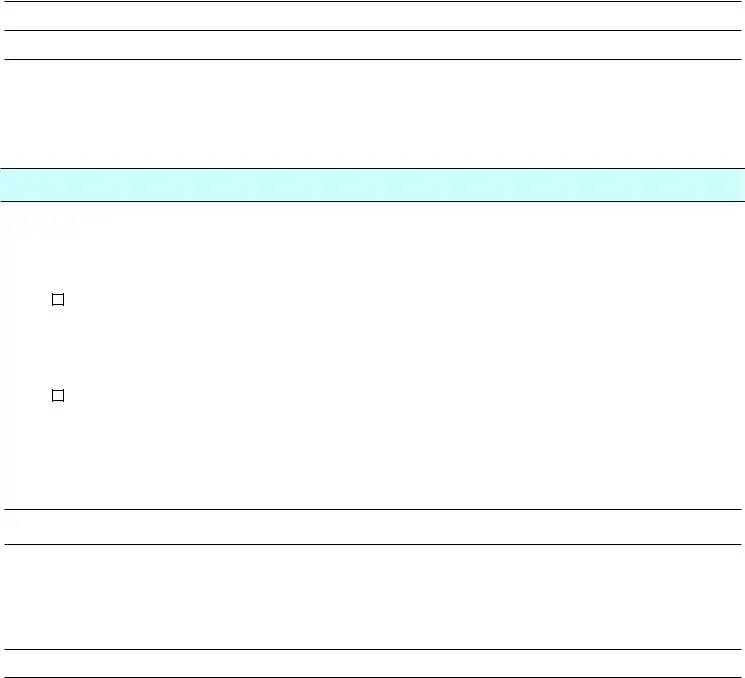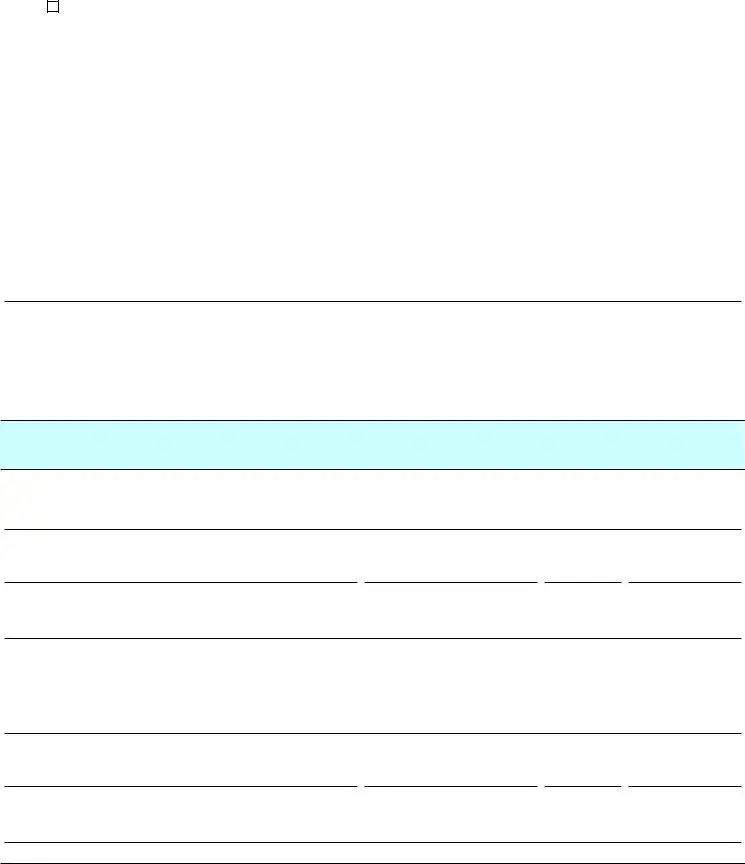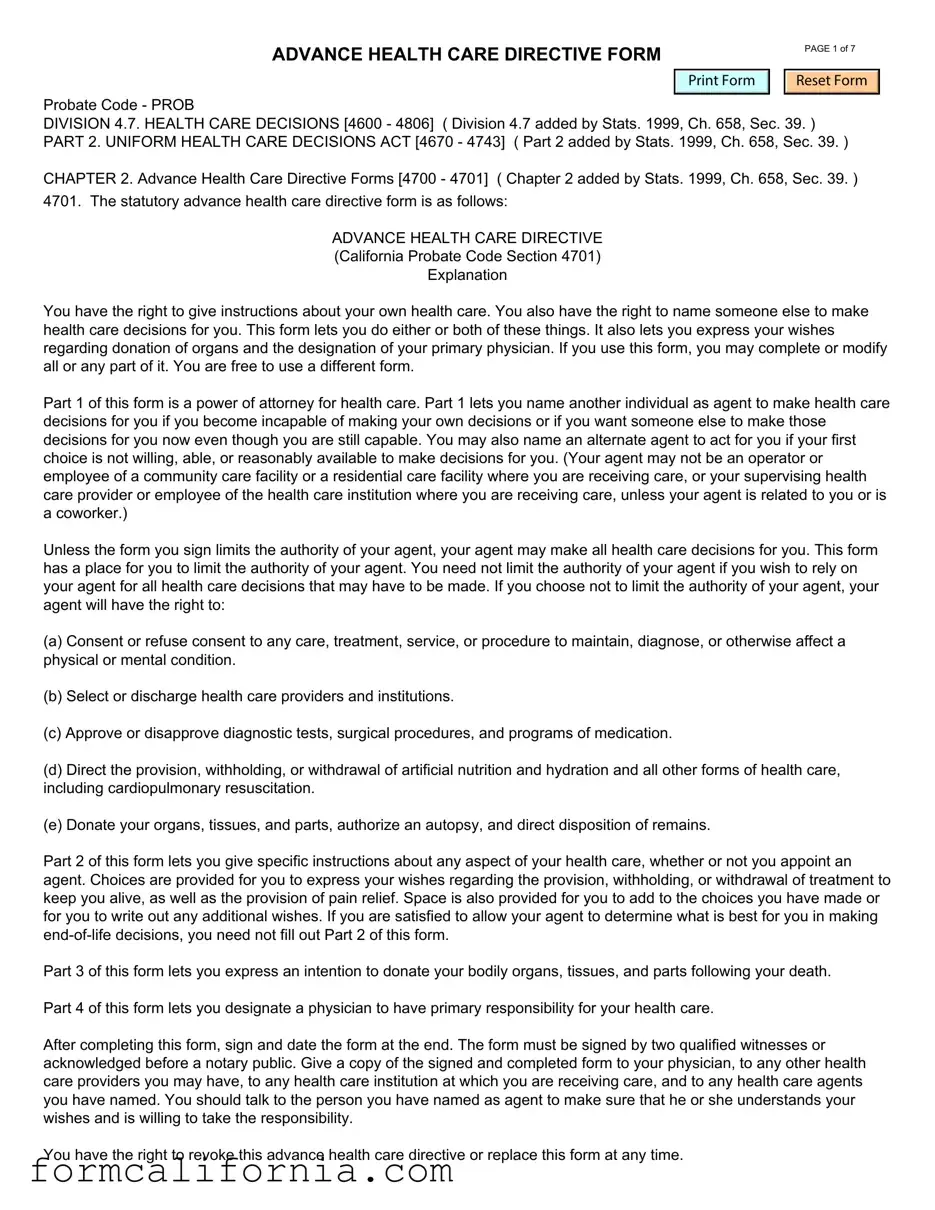Blank California Advanced Health Care Directive PDF Form
When individuals think about the future, certain uncertainties, particularly regarding health care, often provoke anxiety and concern. The California Advanced Health Care Directive form exists as a beacon of control and reassurance amidst these uncertainties. This legally binding document allows people to outline their wishes regarding medical treatment in scenarios where they might not be able to communicate their preferences directly. Encompassing choices about life-sustaining treatment, pain management, and even specific instructions regarding organ donation, the form provides a comprehensive framework for medical decisions. Moreover, it includes the appointment of a health care agent, a trusted individual empowered to make decisions on behalf of the person should they be incapacitated. The process of completing this form is a profound exercise in autonomy, ensuring that a person’s values and desires are respected even when they cannot voice them themselves. In essence, the California Advanced Health Care Directive stands as a crucial tool for individuals to assert their wishes concerning medical care, offering peace of mind to them and their loved ones in facing the unknowns of the future.
Document Preview Example

ADVANCE HEALTH CARE DIRECTIVE FORM |
|
PAGE 1 of 7 |
|
|
|
|
|
|
|
|
|
|
Print Form |
|
Reset Form |
Probate Code - PROB
DIVISION 4.7. HEALTH CARE DECISIONS [4600 - 4806] ( Division 4.7 added by Stats. 1999, Ch. 658, Sec. 39. ) PART 2. UNIFORM HEALTH CARE DECISIONS ACT [4670 - 4743] ( Part 2 added by Stats. 1999, Ch. 658, Sec. 39. )
CHAPTER 2. Advance Health Care Directive Forms [4700 - 4701] ( Chapter 2 added by Stats. 1999, Ch. 658, Sec. 39. )
4701. The statutory advance health care directive form is as follows:
ADVANCE HEALTH CARE DIRECTIVE
(California Probate Code Section 4701)
Explanation
You have the right to give instructions about your own health care. You also have the right to name someone else to make health care decisions for you. This form lets you do either or both of these things. It also lets you express your wishes regarding donation of organs and the designation of your primary physician. If you use this form, you may complete or modify all or any part of it. You are free to use a different form.
Part 1 of this form is a power of attorney for health care. Part 1 lets you name another individual as agent to make health care decisions for you if you become incapable of making your own decisions or if you want someone else to make those decisions for you now even though you are still capable. You may also name an alternate agent to act for you if your first choice is not willing, able, or reasonably available to make decisions for you. (Your agent may not be an operator or employee of a community care facility or a residential care facility where you are receiving care, or your supervising health care provider or employee of the health care institution where you are receiving care, unless your agent is related to you or is a coworker.)
Unless the form you sign limits the authority of your agent, your agent may make all health care decisions for you. This form has a place for you to limit the authority of your agent. You need not limit the authority of your agent if you wish to rely on your agent for all health care decisions that may have to be made. If you choose not to limit the authority of your agent, your agent will have the right to:
(a)Consent or refuse consent to any care, treatment, service, or procedure to maintain, diagnose, or otherwise affect a physical or mental condition.
(b)Select or discharge health care providers and institutions.
(c)Approve or disapprove diagnostic tests, surgical procedures, and programs of medication.
(d)Direct the provision, withholding, or withdrawal of artificial nutrition and hydration and all other forms of health care, including cardiopulmonary resuscitation.
(e)Donate your organs, tissues, and parts, authorize an autopsy, and direct disposition of remains.
Part 2 of this form lets you give specific instructions about any aspect of your health care, whether or not you appoint an agent. Choices are provided for you to express your wishes regarding the provision, withholding, or withdrawal of treatment to keep you alive, as well as the provision of pain relief. Space is also provided for you to add to the choices you have made or for you to write out any additional wishes. If you are satisfied to allow your agent to determine what is best for you in making
Part 3 of this form lets you express an intention to donate your bodily organs, tissues, and parts following your death.
Part 4 of this form lets you designate a physician to have primary responsibility for your health care.
After completing this form, sign and date the form at the end. The form must be signed by two qualified witnesses or acknowledged before a notary public. Give a copy of the signed and completed form to your physician, to any other health care providers you may have, to any health care institution at which you are receiving care, and to any health care agents you have named. You should talk to the person you have named as agent to make sure that he or she understands your wishes and is willing to take the responsibility.
You have the right to revoke this advance health care directive or replace this form at any time.

ADVANCE HEALTH CARE DIRECTIVE FORM
PAGE 2 of 7
PART 1
POWER OF ATTORNEY FOR HEALTH CARE
(1.1) DESIGNATION OF AGENT: I designate the following individual as my agent to make health care decisions for me:
(name of individual you choose as agent)
(address) |
(city) |
(state) |
(ZIP Code) |
||
|
|
|
|
|
|
(home phone) |
(work phone) |
|
|
||
OPTIONAL: If I revoke my agent's authority or if my agent is not willing, able, or reasonably available to make a health care decision for me, I designate as my first alternate agent:
(name of individual you choose as first alternate agent)
(address) |
(city) |
(state) |
(ZIP Code) |
||
|
|
|
|
|
|
(home phone) |
(work phone) |
|
|
||
OPTIONAL: If I revoke the authority of my agent and first alternate agent or if neither is willing, able, or reasonably available to make a health care decision for me, I designate as my second alternate agent:
(name of individual you choose as second alternate agent)
(address) |
(city) |
(state) |
(ZIP Code) |
||
|
|
|
|
|
|
(home phone) |
(work phone) |
|
|
||
(1.2) AGENT'S AUTHORITY: My agent is authorized to make all health care decisions for me, including decisions to provide, withhold, or withdraw artificial nutrition and hydration and all other forms of health care to keep me alive, except as I state here:
(Add additional sheets if needed.)
(1.3) WHEN AGENT'S AUTHORITY BECOMES EFFECTIVE: My agent's authority becomes effective when my primary physician determines that I am unable to make my own health care decisions unless I mark the following box.
If I mark this box  , my agent's authority to make health care decisions for me takes effect immediately.
, my agent's authority to make health care decisions for me takes effect immediately.

ADVANCE HEALTH CARE DIRECTIVE FORM
PAGE 3 of 7
(1.4.) AGENT'S OBLIGATION: My agent shall make health care decisions for me in accordance with this power of attorney for health care, any instructions I give in Part 2 of this form, and my other wishes to the extent known to my agent. To the extent my wishes are unknown, my agent shall make health care decisions for me in accordance with what my agent determines to be in my best interest. In determining my best interest, my agent shall consider my personal values to the extent known to my agent.
(1.5) AGENT'S POSTDEATH AUTHORITY: My agent is authorized to donate my organs, tissues, and parts, authorize an autopsy, and direct disposition of my remains, except as I state here or in Part 3 of this form:
:
(Add additional sheets if needed.)
(1.6) NOMINATION OF CONSERVATOR: If a conservator of my person needs to be appointed for me by a court, I nominate the agent designated in this form. If that agent is not wiling, able, or reasonably available to act as conservator, I nominate the alternate agents whom I have named, in the order designated.
PART 2
INSTRUCTIONS FOR HEALTH CARE
If you fill out this part of the form, you may strike any wording you do not want.
(2.1)
(a) Choice Not to Prolong Life
I do not want my life to be prolonged if (1) I have an incurable and irreversible condition that will result in my death within a relatively short time, (2) I become unconscious and, to a reasonable degree of medical certainty, I will not regain consciousness, or (3) the likely risks and burdens of treatment would outweigh the expected benefits, OR
(b) Choice to Prolong Life
I want my life to be prolonged as long as possible within the limits of generally accepted health care standards.
(2.2) RELIEF FROM PAIN: Except as I state in the following space, I direct that treatment for alleviation of pain or discomfort be provided at all times, even if it hastens my death:
(Add additional sheets if needed.)
(2.3) OTHER WISHES: (If you do not agree with any of the optional choices above and wish to write your own, or if you wish to add to the instructions you have given above, you may do so here.) I direct that:
(Add additional sheets if needed.)

|
ADVANCE HEALTH CARE DIRECTIVE FORM |
PAGE 4 of 7 |
|
|
|
|
|
|
|
PART 3 |
|
|
DONATION OF ORGANS, TISSUES, AND PARTS AT DEATH |
|
|
(OPTIONAL) |
|
(3.1) |
Upon my death, I give my organs, tissues, and parts (mark box to indicate yes). |
|
By checking the box above, and notwithstanding my choice in Part 2 of this form, I authorize my agent to consent to any temporary medical procedure necessary solely to evaluate and/or maintain my organs, tissues, and/or parts for purposes of donation.
My donation is for the following purposes (strike any of the following you do not want):
(a)Transplant
(b)Therapy
(c)Research
(d)Education
If you want to restrict your donation of an organ, tissue, or part in some way, please state your restriction on the following lines:
If I leave this part blank, it is not a refusal to make a donation. My
PART 4
PRIMARY PHYSICIAN
(OPTIONAL)
(4.1) I designate the following physician as my primary physician:
(name of physician)
(address) |
(city) |
(state) |
(ZIP Code) |
(phone)
OPTIONAL: If the physician I have designated above is not willing, able, or reasonably available to act as my primary physician, I designate the following physician as my primary physician:
(name of physician)
(address) |
(city) |
(state) |
(ZIP Code) |
(phone)

ADVANCE HEALTH CARE DIRECTIVE FORM
PART 5
PAGE 5 of 7
(5.1) EFFECT OF COPY: A copy of this form has the same effect as the original.
(5.2) SIGNATURE: Sign and date the form here:
(date) |
(sign your name) |
(address) |
(print your name) |
(city) (state)
(5.3) STATEMENT OF WITNESSES: I declare under penalty of perjury under the laws of California (1) that the individual who signed or acknowledged this advance health care directive is personally known to me, or that the individual's identity was proven to me by convincing evidence (2) that the individual signed or acknowledged this advance directive in my presence, (3) that the individual appears to be of sound mind and under no duress, fraud, or undue influence, (4) that I am not a person appointed as agent by this advance directive, and (5) that I am not the individual's health care provider, an employee of the individual's health care provider, the operator of a community care facility, an employee of an operator of a community care facility, the operator of a residential care facility for the elderly, nor an employee of an operator of a residential care facility for the elderly.
First witness |
Second witness |
(print name)
(address)
(city)(state)
(print name)
(address)
(city)(state)
(signature of witness) |
(signature of witness) |
(date) |
(date) |
(5.4) ADDITIONAL STATEMENT OF WITNESSES: At least one of the above witnesses must also sign the following declaration:
I further declare under penalty of perjury under the laws of California that I am not related to the individual executing this advance health care directive by blood, marriage, or adoption, and to the best of my knowledge, I am not entitled to any part of the individual's estate upon his or her death under a will now existing or by operation of law.
(signature of witness) |
(signature of witness) |

ADVANCE HEALTH CARE DIRECTIVE FORM |
PAGE 6 of 7 |
|
PART 6
SPECIAL WITNESS REQUIREMENT
(6.1) The following statement is required only if you are a patient in a skilled nursing
STATEMENT OF PATIENT ADVOCATE OR OMBUDSMAN
I declare under penalty of perjury under the laws of California that I am a patient advocate or ombudsman as designated by the State Department of Aging and that I am serving as a witness as required by Section 4675 of the Probate Code.
(date) |
(sign your name) |
(address) |
(print your name) |
(city) (state) |
|
(Amended by Stats. 2018, Ch. 287, Sec. 1. (AB 3211) Effective January 1, 2019.)

ADVANCE HEALTH CARE DIRECTIVE FORM
PAGE 7 of 7
ACKNOWLEDGMENT
A notary public or other officer completing this certificate verifies only the identity of the individual who signed the document to which this certificate is attached, and not the truthfulness, accuracy, or validity of that document.
State of California,
County of
On |
before me, |
(insert name and title of officer)
personally appeared
who proved to me on the basis of satisfactory evidence to be the person(s) whose name(s) is/are subscribed to the within instrument and acknowledged to me that he/she/they executed the same in his/her/their authorized capacity(ies), and that by his/her/their signature(s) on the instrument the person(s), or the entity upon behalf of which the person
(s) acted, executed the instrument.
I certify under PENALTY OF PERJURY under the laws of the State of California that the foregoing paragraph is true and correct.
WITNESS my hand and official seal.
Signature |
|
(SEAL) |
|
|
|
Document Specs
| Fact | Detail |
|---|---|
| Purpose | Allows individuals to outline their wishes regarding medical treatment and select a health care agent. |
| Governing Law | California Probate Code, Division 4.7 - Health Care Decisions, Sections 4600-4806. |
| Components | Includes two parts: health care instructions (living will) and a power of attorney for health care. |
| Flexibility | Can be updated or revoked by the individual at any time as long as they are competent. |
Detailed Instructions for Writing California Advanced Health Care Directive
Completing the California Advanced Health Care Directive form is a crucial step for anyone who wishes to outline their health care preferences in the event that they are no longer able to communicate their decisions. This document allows you to specify what medical treatments you do or do not want and appoints a health care agent to make decisions on your behalf should you become incapacitated. It's a thoughtful way to communicate your wishes to family and doctors, ensuring they make decisions aligned with your values and preferences. Here are the detailed steps to fill out the form properly.
- Start by reading the form carefully to understand the types of decisions you can make and the role of your health care agent.
- Part 1: Choose your health care agent. Write the full name, address, and contact information of the person you trust to make health care decisions for you if you’re unable. You can also name alternate agents in case your first choice is unable or unwilling to make decisions for you.
- Part 2: Outline your health care instructions. This section allows you to specify your wishes regarding end-of-life care, organ donation, and other healthcare preferences. Be as clear and specific as possible to ensure your wishes are followed.
- In the sections provided, indicate whether you want to receive life-sustaining treatment only if it might lead to recovery, or even if it only prolongs the process of dying. You can also specify your preferences for relief from pain even if it hastens your death.
- Part 3: Sign the document. Your signature must be witnessed by two individuals who are not your health care agent or related to you by blood, marriage, or adoption. Alternatively, the form can be notarized by a public notary who will confirm your identity and witness your signature.
- Make sure the witnesses also sign and date the form, providing their addresses. If using a notary, ensure they complete their section of the form with their seal and signature.
- Discuss your wishes and provide a copy of the completed form to your health care agent, family, primary physician, and any other healthcare providers to ensure they are aware of your directives.
- Keep the original copy of the form in a safe but accessible place, and consider giving copies to those involved in your healthcare and any loved ones who should be aware of your decisions.
By following these steps, you can complete your California Advanced Health Care Directive form with confidence, knowing you have taken a significant step in managing your health care wishes. It's a profound act of care for yourself and those you love, providing clarity and peace of mind for all involved.
Things to Know About This Form
What is a California Advanced Health Care Directive?
A California Advanced Health Care Directive is a legal document that allows you to state your wishes for your health care and appoint someone to make health care decisions for you if you are unable to make those decisions yourself. This document combines what were formerly known as a Living Will and a Power of Attorney for Health Care into one comprehensive document.
Who can complete a California Advanced Health Care Directive?
Any individual who is at least 18 years old and capable of making their own decisions can complete a California Advanced Health Care Directive.
How do I choose someone to make decisions for me?
The person you choose to make decisions on your behalf is commonly referred to as your health care agent. You should choose someone you trust, who knows you well, and who is willing to take on the responsibility of making health care decisions for you if you are unable to make them yourself. It's also a good idea to have a conversation with this person about your health care wishes and to ensure they are willing to act on your behalf.
What kinds of decisions can my health care agent make?
Your health care agent can make almost any health care decision that you could make if you were able. This includes choices about medical treatments, surgical procedures, life support, and where you receive care. However, your agent must always follow your wishes as they understand them, including any instructions you leave in the Advanced Health Care Directive.
Do I need a lawyer to complete an Advanced Health Care Directive?
No, you do not need a lawyer to complete an Advanced Health Care Directive in California. The form is designed to be straightforward and includes instructions. However, consulting with a lawyer can provide clarity and assurance, especially if you have specific concerns or a complex medical situation.
How do I make my Advanced Health Care Directive legal?
Once you complete the form, you need to have your signature witnessed by two individuals or by a notary public. The witnesses or notary confirm your identity and that you understand the document and are signing it freely and voluntarily. There are specific rules about who can and cannot serve as a witness.
Can I change my mind after I create an Advanced Health Care Directive?
Yes, you can change or cancel your Advanced Health Care Directive at any time as long as you are still capable of making your own decisions. To change your directive, it's usually best to complete a new form and destroy all copies of the old one. Be sure to inform your health care agent, family, and health care providers of the change.
What should I do with my completed Advanced Health Care Directive?
You should give a copy of your Advanced Health Care Directive to your health care agent, your doctor, and any health care facilities where you receive care. It's also wise to keep a copy in a safe place where it can be easily found if needed. Some people also choose to give copies to close family members or friends.
What happens if I don't have an Advanced Health Care Directive?
If you are unable to make health care decisions for yourself and you do not have an Advanced Health Care Directive, California law provides a hierarchy of individuals who would be asked to make decisions on your behalf. This list includes your spouse, adult children, parents, siblings, and others. However, not having a directive can lead to uncertainty or conflicts among family members about your care.
Are Advanced Health Care Directives the same in every state?
No, Advanced Health Care Directives vary from state to state. While many states have similar forms, it's important to complete the directive that conforms to the laws of the state where you live. If you spend a lot of time in more than one state, you might want to have an Advanced Health Care Directive for each state.
Common mistakes
Filling out the California Advanced Healthcare Directive form is an essential step in planning for the future. However, many people encounter difficulties during this process. To ensure your wishes are respected, avoid these common mistakes:
-
Not specifying a healthcare agent clearly: It is crucial to designate a trusted person to make healthcare decisions on your behalf if you are unable to do so. Failure to explicitly name this individual can cause confusion and conflict among family members at a critical time.
-
Ignoring the need to update: Life changes, such as marriages, divorces, or changes in relationships, can impact your choices for a healthcare agent or your healthcare wishes. Regular updates to your directive ensure that it always reflects your current wishes and circumstances.
-
Being too vague or too specific: While it’s important to be clear about your healthcare preferences, being overly vague or overly specific can both be problematic. For instance, overly vague instructions may leave too much room for interpretation, while being too specific may not account for unexpected medical situations. Striking a balance is key.
-
Failing to discuss wishes with the healthcare agent: Merely naming someone as your healthcare agent is not enough. Discussing your healthcare preferences, values, and the responsibilities involved is essential. This ensures they are prepared to make decisions that align with your wishes.
Documents used along the form
When individuals are planning for their future medical care, the California Advanced Health Care Directive form often plays a central role. However, to ensure comprehensive healthcare planning, several other forms and documents are also typically used alongside it. Each of these forms serves a unique purpose, contributing to a fully developed healthcare plan that respects the individual’s wishes and legal rights.
- Durable Power of Attorney for Healthcare: This document allows an individual to designate another person to make healthcare decisions on their behalf, should they become unable to do so themselves. It complements the Advanced Health Care Directive by addressing decision-making authority more broadly.
- Living Will: A living will specifies an individual's preferences regarding certain types of life-sustaining treatments. While the Advanced Health Care Directive can include similar information, a living will often goes into greater detail about end-of-life care preferences.
- HIPAA Authorization Form: The Health Insurance Portability and Accountability Act (HIPAA) protects an individual's health information. A HIPAA Authorization Form allows specified healthcare providers to share an individual’s health information with designated persons or entities.
- Physician Orders for Life-Sustaining Treatment (POLST) Form: This form complements the Advanced Health Care Directive for individuals with serious illnesses. It outlines specific medical treatments the individual desires, based on discussions with their physician, and is signed by both the patient and the physician.
- Do Not Resuscitate (DNR) Order: A DNR order is a request not to have CPR if an individual’s heart stops or if they stop breathing. Unlike the Advanced Health Care Directive, a DNR order is a medical order signed by a doctor.
- Organ Donation Registration Form: This form allows individuals to register their intent to donate their organs and tissues after death. While the Advanced Health Care Directive can include such preferences, registering through a formal organ donation form ensures that one’s wishes are accessible to healthcare providers.
- Funeral Planning Declaration: This document enables an individual to outline their preferences for their funeral arrangements, including burial or cremation, type of ceremony, and other final wishes. It ensures that an individual’s preferences regarding their funeral are known and can be honored.
Each of these documents serves to ensure that an individual's healthcare and end-of-life preferences are clearly communicated and legally recognized. Together with the California Advanced Health Care Directive, they provide a comprehensive legal framework for healthcare planning. It's important for individuals to consider which documents align with their wishes and to discuss their choices with loved ones and healthcare providers.
Similar forms
The California Advanced Health Care Directive form shares similarities with a Living Will. Like a living will, this directive allows individuals to outline their preferences for medical treatment in the event they become unable to communicate their wishes directly. This can include decisions about life-sustaining treatments or end-of-life care. Both documents serve as a guide for healthcare providers and loved ones, ensuring that the patient's wishes are respected even when they cannot speak for themselves.
Similarly, a Durable Power of Attorney for Health Care is another document that resembles the California Advanced Health Care Directive. This legal instrument enables individuals to appoint a health care agent or proxy to make healthcare decisions on their behalf if they are incapacitated. While the Advanced Health Care Directive may include this appointment, it also encompasses instructions about specific medical treatments, combining elements of both a living will and a power of attorney for health care.
A POLST (Physician Orders for Life-Sustaining Treatment) form is also related, specifically in its purpose of directing end-of-life care. However, the POLST form is more medically detailed and is meant to be filled out by the patient and their healthcare provider together. It converts the patient's treatment preferences into medical orders, ensuring these preferences are followed across different healthcare settings. The California Advanced Health Care Directive complements a POLST by covering broader decisions and can incorporate a POLST as part of its directives.
The Five Wishes document presents another comparison. It goes beyond traditional medical directives by addressing personal, emotional, and spiritual needs in addition to medical wishes. While the Five Wishes document encompasses aspects found in the California Advanced Health Care Directive, it does so in a way that is designed to be more holistic and encompassing, making conversations about end-of-life care more about personal values and less about medical procedures.
Lastly, a Do Not Resuscitate (DNR) order somewhat parallels the California Advanced Health Care Directive in its influence on medical care. A DNR specifically instructs healthcare providers not to undertake CPR if a patient's breathing or heartbeat stops. While a DNR is a more narrowly focused document, typically used by patients with a terminal illness or in a hospice setting, it represents a specific decision that can be included within the broader context of an advanced healthcare directive. This inclusion ensures that all aspects of a person's wishes regarding emergency and end-of-life care are clearly outlined and accessible to healthcare professionals.
Dos and Don'ts
Filling out the California Advanced Health Care Directive form is an important step in managing your future health care preferences. To ensure that your directives are clear, valid, and effectively represent your wishes, consider the following dos and don'ts:
Do:- Read the form carefully to understand each section before filling it out. This knowledge will help in making informed decisions.
- Discuss your health care preferences with your loved ones and the health care agent(s) you intend to appoint. Transparent communication ensures they understand your wishes.
- Choose a health care agent who you trust and who understands your values and desires regarding medical treatment. This person will speak for you if you're unable to speak for yourself.
- Be specific about your health care wishes, including treatments you would and wouldn't want under certain conditions.
- Sign and date the form in the presence of two witnesses or a notary, as required by California law. This action validates the directive.
- Provide copies of the completed form to your health care agent, family members, and doctors to ensure your wishes are known and accessible.
- Rush through the process without carefully considering your options and preferences for future health care decisions.
- Forget to update your directive as your health situation or wishes change. Review and revise the directive as necessary.
- Assume your doctors will automatically know your wishes without having a copy of your health care directive.
- Overlook state-specific requirements or assume that the process is the same everywhere. The California form must be completed according to California law.
- Leave blanks on the form if you're uncertain about your decisions. Seek advice from health care professionals or legal counsel if needed.
- Fail to communicate your wishes to your health care agent and family members, as this could lead to confusion or conflict during critical times.
Misconceptions
Only for the Elderly: A common misconception is that the California Advanced Health Care Directive form is only applicable to older adults. However, it benefits people of all ages, as unforeseen health situations can occur at any time, making it necessary to have one's healthcare preferences documented.
Legally Complex: Many believe that completing an Advanced Health Care Directive requires extensive legal help and understanding. In reality, the form is designed to be filled out without mandatory legal assistance, allowing individuals to state their healthcare wishes in clear, straightforward language.
Only Covers End-of-Life Decisions: While it is true that the form includes decisions about life-sustaining treatment, it also addresses a wide range of healthcare preferences and scenarios, not limited to end-of-life care.
Permanent and Irrevocable: There's a misconception that once completed, the form's directives cannot be changed or revoked. However, individuals have the right to revise or completely revoke their directive at any time as long as they are mentally competent.
Guarantees All Preferences Will Be Followed: While the form is legally binding and healthcare providers generally strive to honor the patient's wishes, in rare cases, medical or ethical limitations might prevent the execution of specific directives contained within the form.
Replaces a Will: Some people mistakenly think that an Advanced Health Care Directive can serve as a will for distributing assets and taking care of financial obligations. However, its purpose is solely to document healthcare preferences, not to handle estate or financial matters.
Requires a Lawyer or Notary for Validity: Although having professional advice can be beneficial when completing complex legal forms, the California Advanced Health Care Directive does not require a lawyer or notary to be valid. It typically needs to be signed by the individual and witnessed by others, as specified by state law.
No Need If You've Told Your Family Your Wishes: Even if you've discussed your healthcare wishes with family members or friends, without documenting these preferences in an Advanced Health Care Directive, healthcare providers may not be able to follow these informal instructions. Having a formal, written directive ensures that your wishes are clearly communicated and more likely to be followed.
Key takeaways
The California Advanced Health Care Directive form is an essential document that allows individuals to outline their preferences for medical treatment in the event they are unable to make decisions for themselves. Completing this form is a significant step in planning for future healthcare needs. Here are key takeaways on filling out and using this form.
- Choose Your Health Care Agent Wisely: When you appoint a health care agent, select someone you trust to make medical decisions on your behalf, should you become unable to do so.
- Discuss Your Wishes: Before you complete the form, have a conversation with your chosen agent and loved ones about your health care preferences and end-of-life wishes.
- Be Specific: The more specific you are about your health care preferences, the easier it will be for your agent to make decisions that align with your wishes. Include instructions on treatments you would or would not want.
- Legally Binding: Once signed in accordance with California state law requirements, your Advanced Health Care Directive becomes legally binding. This means health care providers must follow your agent’s decisions as if they were your own.
- Keep It Accessible: After completing the form, make sure your health care agent, family members, and primary physician have copies. This ensures your wishes are known and can be easily accessed when needed.
- Review and Update Regularly: Your preferences may change over time, so it’s important to review and, if necessary, update your Advanced Health Care Directive periodically. This might be triggered by major life events like marriage, divorce, or a significant change in health.
- No Attorney Required: While you don’t need a lawyer to complete an Advanced Health Care Directive in California, consulting one can help clarify your options and ensure your document is filled out correctly.
- Witness Requirements: Ensure your directive is properly witnessed or notarized, as required by California law. This step is crucial for the document to be effective and enforceable.
Filling out the California Advanced Health Care Directive is a proactive measure to ensure your health care preferences are respected, providing peace of mind for you and your loved ones.
Discover More PDFs
How to Pay $800 Llc Fee Online - LLCs must disclose if they own interests in disregarded entities, which could influence tax outcomes.
Bar Exam California - Encourages applicants to prepare cashier's check, travelers’ check, or money order payable to “State Bar of California,” guiding them on secure payment options.
California Fl 145 - The inclusion of a clear this form feature underscores the judiciary's commitment to privacy and data protection, even within mandated information exchanges.
